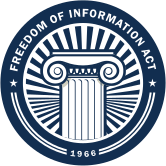Ninth Circuit Rules in Favor of Transparency in FOIA Case
Cyberlaw Clinic » Blog 2020-12-07
Last week, the United States Court of Appeals for the Ninth Circuit handed down a major victory for government transparency in Center for Investigative Reporting v. DOJ (pdf). An amicus brief authored by Cyberlaw Clinic students and staff on behalf of news media organizations and data journalists was cited throughout the court’s decision and has had a major influence on how the court interpreted the Freedom of Information Act.
handed down a major victory for government transparency in Center for Investigative Reporting v. DOJ (pdf). An amicus brief authored by Cyberlaw Clinic students and staff on behalf of news media organizations and data journalists was cited throughout the court’s decision and has had a major influence on how the court interpreted the Freedom of Information Act.
In this case, the Center for Investigative Reporting (CIR) requested aggregate data from a government database of firearm records. CIR requested aggregate data because of the Tiahrt Amendment, a rider contained in annual appropriations acts that prohibits disclosure of firearm trace information, but allows the release of “statistical aggregate data.” The district court ruled in favor of the government, holding that CIR’s request for aggregate data would require ATF to create a new record.
The Cyberlaw Clinic authored an amicus brief (pdf) arguing that searching, filtering, sorting, and other forms of database manipulation do not constitute the creation of a new record. The brief explained how databases like the one used by ATF are structured, and how a database can be queried to yield information in various arrangements. Amici include sixteen individual data journalists and professors of journalism, and five media-related organizations.
On December 3, 2020, a three-judge panel of the Ninth Circuit entered judgement in favor of CIR. The court held that the Tiahrt Amendment is not a proper withholding statute under FOIA Exemption (b)(3) because it does not explicitly reference the FOIA as required. In so holding, the court rejected the government’s argument that prior versions of the Tiahrt Amendment, enacted prior to the updated Exemption (b)(3) in the OPEN FOIA Act of 2009, could be “carried over” for purposes of the FOIA.
The court then went on to address the government’s other argument: that querying aggregate data from a database constituted the creation of a new record. The court rejected this argument on multiple grounds. First, it explained that the history of the FOIA and E-FOIA laws, as well as precedent interpreting them, made it plain that a database search does not require creating new records. Next, it noted that the technical capabilities of databases mean even novel queries constitute access to existing records. Finally, it explained that “[w]ere [the court] to agree with ATF that the results of a search query run across a database necessarily constituted the creation of a new record, we may well render FOIA a nullity in the digital age.”
The Cyberlaw Clinic brief was cited frequently throughout the latter part of the opinion for the importance of data journalism, the nature and meaning of database queries, and the view that “an agency that stores information in a database creates ‘a multitude of different arrangements [of the data] . . . , each of which is in the agency’s possession or control.’”
The Cyberlaw Clinic is grateful to have represented amici and hopes the Ninth Circuit’s decision will pave the way for transparency and access to government records in the modern era. The Clinic Staff are especially appreciative of Spring 2019 clinical students Alena Farber, Ariel Hoffman, and LeHeng Li for their invaluable work, without which the brief would not have been possible.